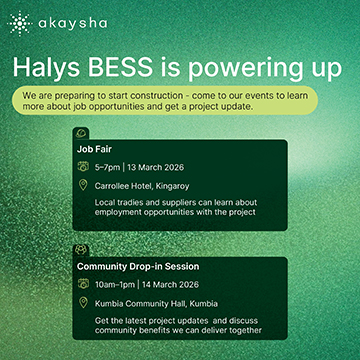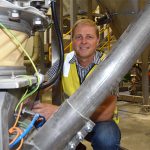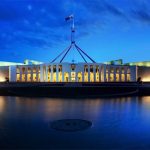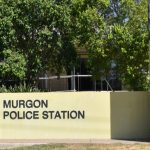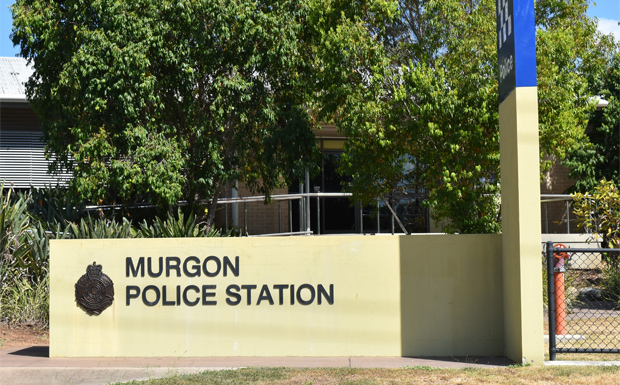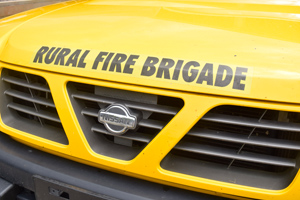
May 11, 2016
Member for Wide Bay and former Deputy Prime Minister Warren Truss farewelled Federal Parliament last week after serving the electorate – which includes the northern half of the South Burnett – for 26 years.
Mr Truss, 67, announced in February that he would not re-contest the seat and also stood aside as parliamentary leader of The Nationals.
Before he entered Federal politics, Mr Truss served on Kingaroy Shire Council from 1976-1990, including seven years as Shire Chairman (Mayor).
Mr Truss’ speech, below, has some harsh words about rural media and paints a distressing picture about an unnamed Aboriginal community within the Wide Bay electorate.
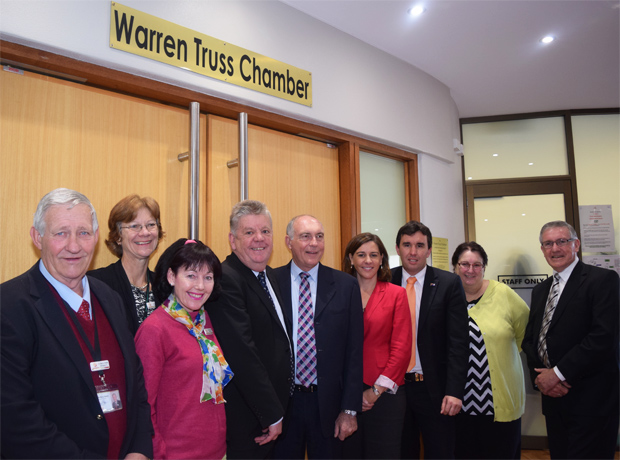
* * *
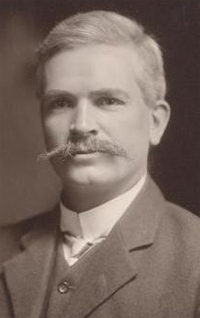
May I thank the House for giving me this opportunity, during the debate on the address in reply, to say thank you and farewell to my colleagues in the Parliament and to the people of Wide Bay.
I am very grateful to those people for having elected me to the parliament over the last 26 years. Wide Bay is one of the original Federation seats. In all that time, there have only been two members for Wide Bay who have been Ministers.
The first was Andrew Fisher, who was the Labor Prime Minister of Australia and, indeed, the first Prime Minister to actually have a majority in Australia, back in about 1910 to 1913.
I am the second, and I had the privilege to become Deputy Prime Minister. So it has been a long contribution for me in the Parliament.
There have been many highlights, things that I would like to have done better and things that I think have made a difference to the country, which have left me with many enduring and very important memories.
My time in the Ministry was interrupted by a period in Opposition. Opposition is not a particularly rewarding or fulfilling experience. For those that are new to the House and having their first experience in the Parliament as members of the government, I hope that they will appreciate very much this time, how valuable it is and how often you will want to keep it. I did not really think it was a great problem for me to have my first six years in Opposition, because it is a learning time. You learn a lot from Opposition as well.
Then followed the better times. I had then a succession of opportunities in the Ministry. Indeed, there has only been one Queenslander, Sir Littleton Groom, who has spent more time in the Ministry than I have, and that was 100 years ago. So I think most people have forgotten that.
My 26 years in the Federal Parliament were proceeded by 14 in local government, so it is now 40 years in elected office, and that is a long time.
I enjoyed my time in local government, and particularly the seven years as mayor. It was a time when a lot of things were happening in Kingaroy, with the development of the Tarong Power Station. We built a new airport, raised the dam wall, brought in the first Shire plan. It was indeed a period of substantial progress and development for the region.
I had also been actively involved in agricultural politics, if you like. I was President of the Australian Council of Rural Youth. All of that, I guess, provided me with a wonderful background and an opportunity to engage with my local community.
My first ministry was actually Customs and Consumer Affairs, and in my first Cabinet submission I brought forward a proposal for Australia’s first country-of-origin labelling laws. I recall it quite well. I did not have any trouble in Cabinet getting it through. In fact, as I walked in the door the Prime Minister was already telling everybody that it was a good submission and that it was one we had to have. So I did not have to use any debating skills to get it through. Of course, I think that legislation set in place the concept that Australian consumers had a right to know where their products were coming from and also that that would be clearly identified for them. I still do not think there was all that much wrong with it, other than that it was never properly policed.
That is a real issue with the Federal-State arrangements, because the responsibility for policing these regulations actually rests with the State, even though the Commonwealth passed the law, and the States generally pass it on to Local Government. But most Local Governments have never realised that it is their responsibility. So nobody was looking after it. So I wish the new Minister great success with the new laws, and I hope that their quality will be reinforced by the fact that they will be appropriately policed and that, therefore, people will know in fact what is happening.
I then became the Minister for Centrelink in the Social Security portfolio. I was the first Minister with specific responsibility in that area. It was a challenging time, because this new organisation was set up with a board and a corporate type structure, yet the people who were working in it were former Social Security Department employees and former Commonwealth Employment Service employees, and they were not feeling all that co-operative towards this venture. But, after we won the next election and people realised this organisation was here to stay, we did, I think, build a very worthwhile organisation, and it is obviously part of Australia’s social infrastructure at the present time.
One of the difficulties we had to face was trying to get the call centres to work. There were long delays. I, at one stage, as Minister, had come to the conclusion that call centres of this scale could not be made to work. I visited New Zealand, where they had a fraction of the staff doing twice as much work and had happy customers, and I realised that our problem was management and the way in which it was run. So we did have some good years, but I think there is probably a need again now for some extra staff in Centrelink, because the call centres have become so busy. It is, I understand, just about the biggest call centre network in the world.
The other really great thing about the Centrelink call system is that so many of the call centres are in regional communities. They are major employers, but they are very successful centres because, by country standards, the jobs are well paid and they attract good people. Many of the Centrelink staff have been there in those call centres for decades. That means they understand their work as well.
I then moved into the portfolio of agriculture and, having come from the farm sector, it was not one that I was particularly looking forward to.
I had been on the Graingrowers’ Association State Council with Ian Macfarlane. We were the two youngest members on the State Council. I can recall one occasion when Ian Sinclair was the Minister and we invited him to address our State Council. We gave him a terrible time! I felt embarrassed by the grilling that he received. I said to myself then, ‘That’s one job I never want in my life.’
Of course, when I became Minister I experienced a few of those grillings myself. Farmers expect a great deal of their Agriculture Minister, particularly if they are a National. It was a time when we enjoyed some good seasons, but then followed the millennium drought, probably the worst drought in our nation’s history. As a result of significant government initiatives in areas like the establishment of exceptional circumstances assistance, which became a multi-billion-dollar program by the time it was concluded, many farmers were able to see their way through that drought and were able to actually then go on to have prosperous years subsequently. In spite of the pain and hardship at the time, I think that was a worthwhile initiative. It certainly helped many people who otherwise would not have survived that drought.
We also had major restructuring in the dairy and the sugar industries in particular. Again, they were very difficult times. The States undertook this deregulation, not the Commonwealth, but we were expected to help out those who were damaged and hurt by the restructuring arrangement. It would be true to say that the dairy industry, particularly in States other than Victoria and Tasmania, has never really fully recovered from the arrangements that were put in place at that time. But, again, the Commonwealth was there. A $2 billion assistance program was funded by the levy on milk. It was something that had never been done previously, but I think it did help many people through those problems where otherwise they could not have succeeded.
The sugar industry also received a lot of assistance and had a quite miraculous turnaround. The assistance, over $400 million, was offered and provided when the price was down to 4c a pound, just an absolutely rock bottom price way below the cost of production. As soon as we introduced the assistance and made it available to farmers in the industry, the price of sugar gradually went up. Within about 12 months, it was at 18c a pound, the best prices they had ever had. So it was a very successful program, but I suspect the taxpayers’ money did not make all that much difference in the end to the revitalisation of that industry.
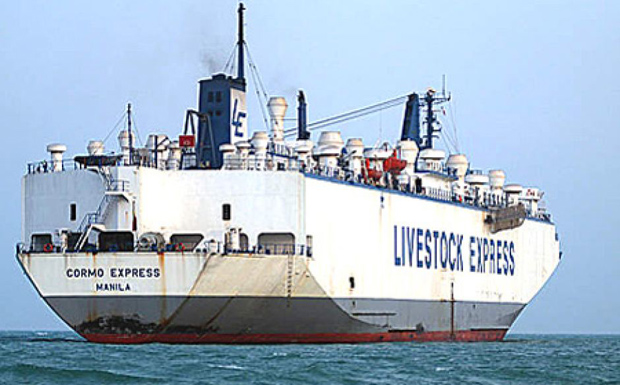
There are many other memories, particularly in the live animal trade with the famous Cormo Express incident, where we had 57,000 sheep on a ship for three months looking for a home after they were rejected in Saudi Arabia. If I was to start telling that story today, we would be here for a very long time. I may one day write a book, and it might take the whole of the book to tell the Cormo Express story. It is an extraordinary story of interaction between countries, saving face and the importance of the industry. But we learnt a lot of lessons from it all, and I think the trade has been very much the better as a result.
I was Trade Minister, in a pretty unrewarding period. The world was still trying to make a success of the Doha Round, but it was getting nowhere. Clearly, it should have been put to death at that stage, rather than waiting another seven or eight years. As I said previously, while some preparation work was done by others, Andrew Robb’s role in his couple of years as Trade Minister was simply without precedent and deserving of enormous credit. While I had a role in the establishment – the starting up – of the China and Japan free trade agreement talks, we had only dealt with the easy issues by the time that I left, and there was a long gap then before they were able to come to a conclusion.
Perhaps the most exciting and interesting portfolio from my perspective was Transport, a portfolio I held in government and in opposition for almost 10 years. It is an exciting portfolio because you are building a lot of things. The $50 million infrastructure program that the Abbott government implemented has, I think, been the most important infrastructure initiative a Federal Government has ever taken. It was really exciting to be involved.
There were big projects in every capital city, but there were also important projects in regional committees. Big projects like this, inevitably, are going to cross governments. I guess one of my regrets at leaving now is that so many of the projects for which I turned the first sod I will not be there for the conclusion. And I acknowledge that I opened projects that the previous government had started, because they go that long. They need to have a degree of bipartisan support. That is why the events of the Melbourne East West project and the Brisbane BaT tunnel were such shattering blows to the construction industry. The reality is: we have to honour contracts. We have to proceed even if we sometimes think that there are better options. We do need to maintain the confidence of the sector.
We committed to complete the Pacific Highway project by 2020, and we will do that. The last section is underway. That was a particular thrill, to advance the 80/20 funding and to make it all happen. In my own State, there was the $8.7 billion committed for the Bruce Highway. Perhaps the best news story out of all of that was the award that the Queensland Government recently received for the safety outcomes as a result of the work on the Bruce Highway.
There was an average of 55 fatalities a year on the Bruce Highway. That is now down to 17, even though the volume of traffic has doubled. It is not just big expensive four lanes; it is also wider centre lines and more safety rails, and things of that nature. That is the real result of investment in infrastructure. It is the kind of social outcome that you get on top of the economic outcome.
But that portfolio has a lot more than roads, of course. The aviation sector is perhaps its most challenging area. There are a lot of characters in aviation. We have some of the most remarkable aviators in the world. Our history is dotted with famous people. One of them, of course, is Dick Smith, who would deserve a chapter in any book about Australian aviation. But he can also be a bit of a trying character, as Ministers for Aviation find out very quickly.
Indeed, when I was first appointed Minister for Transport, I was in China at the time with my previous portfolio. We did not have mobile phones with message banks in those days. So it was only when I got back to Sydney that I turned on my phone. The very first message on the phone was from Dick Smith. He had my mobile number. He has everybody’s mobile number! He was calling me to offer his services and to tell me that he wanted to make a further contribution to the aviation industry. He is a great character, and I admire him enormously. But he has been given plenty of opportunities in this field, and he has made a contribution. I think it is, perhaps, time now for others to be making that contribution. I think the member for Mackellar, who just spoke, might be one of those who might agree with me on that score.
The aviation sector also has had its challenges. We did the big security review under Sir John Wheeler and then the review of CASA. CASA really has needed reform and to have a culture change. I think that is now well underway. I think the most moving part of my whole time in the portfolio was the loss of MH370. One of the things I regret most is that I am leaving the office and the search is nearly completed but we have not found the aircraft. Even though the experts have agreed that there is a 95 per cent chance that we are searching in the right area we have not found it. That is a tragedy for the families and it is a tragedy for the industry not to be able to get finality about what has happened.
While there are plenty of theories – another chapter in my book – it will never be properly resolved until we are able to locate a significant part of the wreckage. It was particularly moving to be involved with the Australian families who were affected by MH370, particularly one family that lost loved ones on both MH370 and then in the subsequent MH17 disaster. Everyone felt especially for them. I had given all the families my mobile phone number, so I was able to keep in regular contact with them. I am really sorry that I have not been able to make the calls to say it is found and we now have the answers.
It has been a pleasure always to be a part of the National Party. I have very much enjoyed the camaraderie of my colleagues. I have appreciated the privilege of being a leader and having the opportunity to work with some really, really great people.
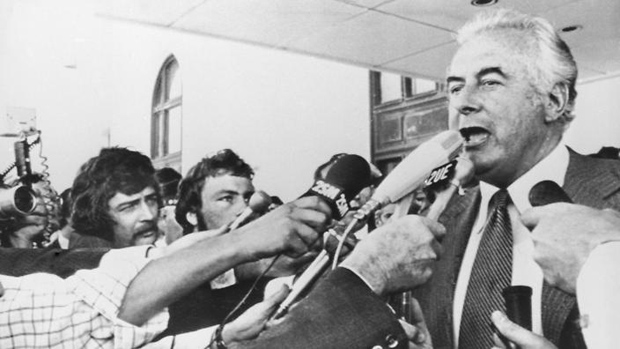
My interest in politics, though, I have to honestly attribute to Gough Whitlam. Like many people on both sides of the House, he got me interested in politics. However, I was not attracted to his version of the way in which the country should be run, and at that time joined the Nationals. In fact, I still have my original membership receipt from the old Australian Country Party. It is not as though I have it framed on the wall; I found it in the clean up that is going on at the present time. I became, therefore, an active member of the party way before I was even interested in political office.
I think I have attended pretty well all of the State Conferences since that day. I am grateful to the many people within the party who have nurtured me and given me opportunities. Next Saturday there is a meeting of the Wide Bay Divisional Council. I think it will be the first one I will have missed in 30 years. The party has meant a lot to me at branch and local level. I have held most of the offices, and the support has been much appreciated.
I have also appreciated the relationship I have been able to have with the Nationals in other States. We are an affiliation of State parties rather than a national party divided into state branches. That can be tough. Our State branches are very independent. They do things their way and it works for them in their way, but it has always been a major task for the Nationals to run a national organisation that works effectively.
Some may consider us to be a conservative party but we have been a progressive party. We had the first woman National President and State President of a party, and there have been quite a number since. The first Aboriginal ever elected to Parliament came from the National Party in Queensland. We have been at the forefront also of social issues, although often taking, I acknowledge, the conservative side.
I think it is a party that still has a great deal to contribute. There have been those who have predicted its doom for many, many decades, and we have been through some difficult times. While many people think Wide Bay is a relatively secure seat, there was one election that nobody expected me to win. That was the one immediately after the gun laws were introduced, which we have been recognising recently. They were very popular through most of the country but devastating for our constituency. Indeed, the party lost close to half its membership during that period, and since our party is based very much on grassroots membership that mattered a great deal to us and affected our capacity to do things at the time.
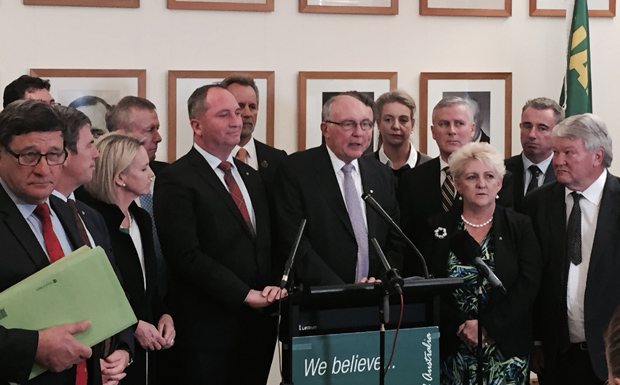
It was a long recovery, but bit by bit we have grown and become strong. I am pleased that the party I am leaving behind is bigger than the one I led when I first became leader. It is substantially larger, and I hope that at the election coming up it will be even bigger and able to make an even more substantial contribution to our country.
Our objective in particular has always been to help those people who live outside the capital cities and to address disadvantage for those who live in the country. There has been an enormous amount achieved. We have obviously got better roads and the installation of the NBN. The wireless and satellite coming on-stream last weekend has regional Australia with telecommunications of very similar quality to what people have in the middle of the cities and at about the same time.
I can remember, with the member for Maranoa, when the big issue was’ Can we just get local calls to our business centre?’ That was a huge issue. Now we can call the world for the same price as anyone else in the country. So we have been able to achieve a great deal.
There is still too big a gap between the country and the city. It is a big continent, and 80 per cent of the people live in the cities, but a lot of our national wealth, probably the majority of our national wealth, is still produced in the country. Even though I know we are transitioning to a broader economy, never forget that the traditional industries located in regional Australia are going to be a vital part of the economy in the future.
We still have hundreds of years of supply of minerals that the world wants and will be paying higher prices for in the future. The only reason why we will not be making a lot of money out of coal for generations ahead is if we decide of our own accord not to do it. I think that would be a silly thing to do. Iron ore and others are the same. But our wealth is also in agriculture, where I think there are enormous opportunities in whatever economy.
In my maiden speech, I made reference to the fact that we were living in the fastest-growing sector of the globe. I predicted (that) within my lifetime this South East Asian quarter will be the most important economic arena in the world.
It has a huge population and escalating demand. There is only one country in this area that has a land mass which even approaches Australia and that is China. It reproduces our population every 42 weeks.
Australia has bountiful resources and is a natural supplier of raw materials, primary products, food and fibre, education and tertiary services for this next economic beehive of the world. We have another opportunity for national greatness but only if we are prepared to grasp it, to encourage industry and initiative, and to support those who are prepared to give it a go.
It was a bit controversial, actually, to talk about coming closer to Asia 26 years ago, but I do not think anyone would any longer call those comments visionary. It has already happened with the free trade agreements. The opportunities that are there are just so enormous that our capacity as a country to remain strong and to continue to deliver a quality of life to our people is simply abundant.
But we do need to remember that people who live in rural areas are also Australians and we have a right to expect a fair share of our nation’s growth and prosperity.
Currently, the APN newspapers – 70 of them – are running a campaign demanding a fair go for rural Australia. I would be a bit more sympathetic to them if they would do something to stop the running down of their own local news desks, getting rid of their printing presses and taking everything on syndication from the cities, in other words, if they were doing their bit to maintain strong country communities, but they have raised some very valid points over the last few days.
For instance, it is simply not reasonable for people to accept a situation where the life expectancy of a child born in my electorate is five years lower than someone born two hours down the road in Brisbane. It is unacceptable that the average income in my electorate is half the average income in Canberra. It is unacceptable that we should have unemployment rates double that of Brisbane. It is also unacceptable that you have eight times less chance of reaching level 12 from level 10 in Maryborough than you have in Brisbane.
We have made a lot of progress, but these are social justice issues that are on our own back doorstep. We are often very good at saying what should happen in other parts of the world, but these are some things we need to do in our own country. I acknowledge that progress has been made, and I do not regard my time here as a total failure. We have made a lot of progress, but there is still a lot more for my successor to do when he comes into the Parliament. As a country, we offer so much and we need to share it with all Australians, including those who live outside the capital cities.
When I hear people in the cities complaining about having to pay $2 million for a house, I say to them: ‘Well, come and live in my electorate. You can have a whole street for that!’ If they are complaining about traffic jams, I can show them a road to their office where there will be a couple of traffic lights but there will not be any congestion. You can walk where you like, ride your bike where you like and enjoy the lifestyle that a country community can offer.
Finally, let me say that one area where I think we have so much more to do is the lot of the Australian Aboriginal people. We really have not been successful in bridging the gap. There have been plenty of pious words spoken and there have been plenty of attempts to try and do something. I am not questioning the integrity and the determination of everybody. There is a sincerity about trying to do something to improve the lot of the Australian Aboriginal people, but we have not been successful. I have been here for apologies, I have seen land rights and I have seen the setting up of companies and grants to buy land.
I can remember Ian McLachlan saying at the time when the government introduced an annual payment so that Aborigines could buy land, ‘With this amount of money, the Aborigines should be able to buy the whole of Australia within one generation.’ It has not happened because so many things have not been well managed. We have to address the issues. I think Nigel Scullion is just about the best Aboriginal Affairs Minister we have had in a long time because what he is trying to do is to get Aborigines to school and get them involved in their communities. The reality is that Europeans, other Australians, cannot make this transition for Aborigines. They have to want to do it themselves. They have to have the determination to make things better.
I have a significant Aboriginal community in my electorate. It is a town of about 2000 people. It has every imaginable facility. It is, without question, the best-equipped country town in my electorate, but it is still a place where there is serious violence and a lack of industry and where things fail the moment the subsidies stop. We have to help those people. Most of the girls are pregnant by the time they are able to be pregnant and the boys rush off to Musgrave Park in Brisbane. The families have broken down. Some structures are there, but the Elders no longer have authority.
There are some really beautiful people, and I think, Aborigines themselves have to want to take control of their own destiny and do it for themselves. It is going to be a challenging task because we have not made enough progress in the past. We need to in the future.
Finally, I want to say thank you to all of those who have been good to me and have helped me during my time in the Parliament. There are so many colleagues and friends and so many people in the Parliament itself. I think frequently of those who greet us at the door, always with a friendly smile, reinforced these days, unfortunately, by bevies of security. There was no security when I came into this place, well, I guess there was, but we did not notice it, 26 years ago. There was no screening at the doors etc. I think it is a pity that we have had to get to that stage, but that is a new part of our life.
To the Sergeant-at-Arms and the Clerks, thank you so much for your support – you have been great friends to us all – and Tim and the dining room staff and the cleaners, particularly the cleaners in the Ministerial Wing; they were always cheery, and maybe the Ministerial Wing is dirtier than the other places so they are needed there more often. They have been great, as have the people in No 34 Squadron and the COMCAR drivers, and in my case I particularly acknowledge those who have undertaken the seven-hour return journey to get me home in the middle of the night from Brisbane when that has been necessary.
I acknowledge particularly my staff. In Canberra I have had only two chiefs of staff, and they are David Whitrow and Cheryl Cartwright. I think they are both here tonight. They have been loyal and faithful over a long period of time. But it has been a really great team, some of whom have gone on to be very successful in other careers subsequently, and I congratulate and thank them for all they have done. I would like to particularly mention Cecily Werder, who has been on my electorate staff for all 26 years that I have been in the Parliament. Indeed, I inherited her from my predecessor. She is going to retire as well, and who can blame her?
MaryAnn Boldery has been with me for most of the 26 years, other than a break for children. She worked for my predecessor as well. I might add that the third staff member who I inherited from my predecessor was my wife, Lyn. As some of you probably know, the first thing I did was sack her because I believe it is not a good idea for members’ families to be a part of the staff. So I guess I have had a free staff member ever since, and she has been absolutely wonderful to me. Di Green is also currently on my staff, and has been for 15 or 20 years. I have been blessed to have people who put up with me for a long period of time.
I acknowledge my local LNP people: Guy Burnett and Bill Hovard in particular – people who have been my campaign directors – and now Llew O’Brien, who has been endorsed as the party’s candidate for this seat and will be an excellent member if the people of Wide Bay choose to elect him, and I will be recommending that course of action.
I actually met Lyn because she was secretary of the divisional council and I was the president, so ours is actually a relationship born of the party. She has been a wonderful support through all of that time, and I am very grateful for it.
I acknowledge also on the other side the shadow ministers I have worked with. I am particularly grateful to my departmental staff, especially Mike Mrdak and Mike Taylor, who have seemed to follow me from portfolio to portfolio. They are two outstanding public servants, but there are many others. The public of Australia is well served by the Commonwealth Service here who deal with governments of all political persuasions and do it with competence and a great deal of skill.
So, thank you very much to all of those people. Thank you to the staff who joined me in the gallery today. It is clearly the end of an era for me, but it is the beginning of an era for someone else who will take my place.
Thank you all, to those who are in the Chamber tonight, for your friendship and your courtesy. Thank you for the opportunities that have been given to me. Thank you to the people of Wide Bay, who faithfully returned me time and time again. I hope my representation of that area has delivered real benefits, even though I know there are still some tasks left for my successor to take up.
Thank you.






